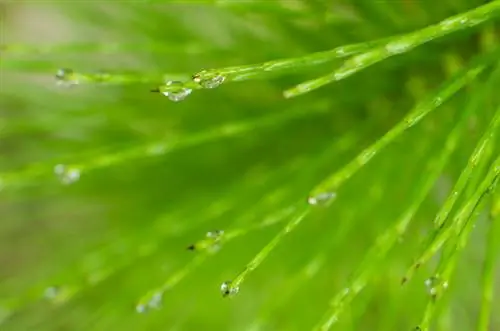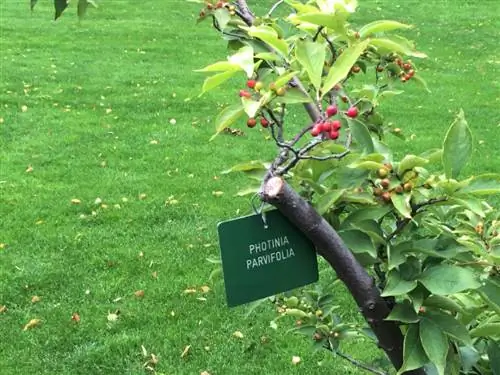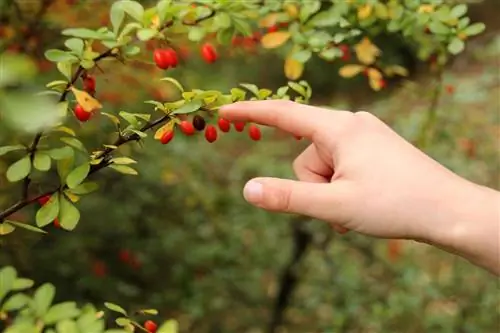- Author admin [email protected].
- Public 2023-12-16 16:46.
- Last modified 2025-01-23 11:20.
The Judas tree (Cercis), also known as the heart tree or love tree, develops lush flower clusters not only on the young shoots and branches, but also on the perennial wood and even directly on the trunk. This botanical peculiarity as well as the immense, pink or white flowers make the Judas tree an exotic eye-catcher both in the garden and in the pot. However, the butterfly-like flowers are not only beautiful to look at, they are even edible.

Is the Judas tree poisonous?
The flowers of the Judas tree (Cercis) are edible and taste sour-sweet, while fruits, seeds and leaves can cause mild symptoms of poisoning in sensitive people. Therefore, children and pets in particular should avoid these parts of the plant.
Judas tree flowers are edible
The beautifully shaped and intensely colored flowers decorate both salads and desserts in their raw form and conjure up a wonderful contrast. Their taste is quite mildly sour-sweet. Some gardeners also eat the legumes that ripen between August and September, although their unique aroma is not necessarily for everyone. In addition, the fruits and seeds, but also the leaves - in contrast to the flowers - can lead to mild symptoms of poisoning in sensitive people and should therefore be avoided, especially by children and pets.
Tip
The Judas tree can be easily propagated by the seeds that ripen in the fruits.






